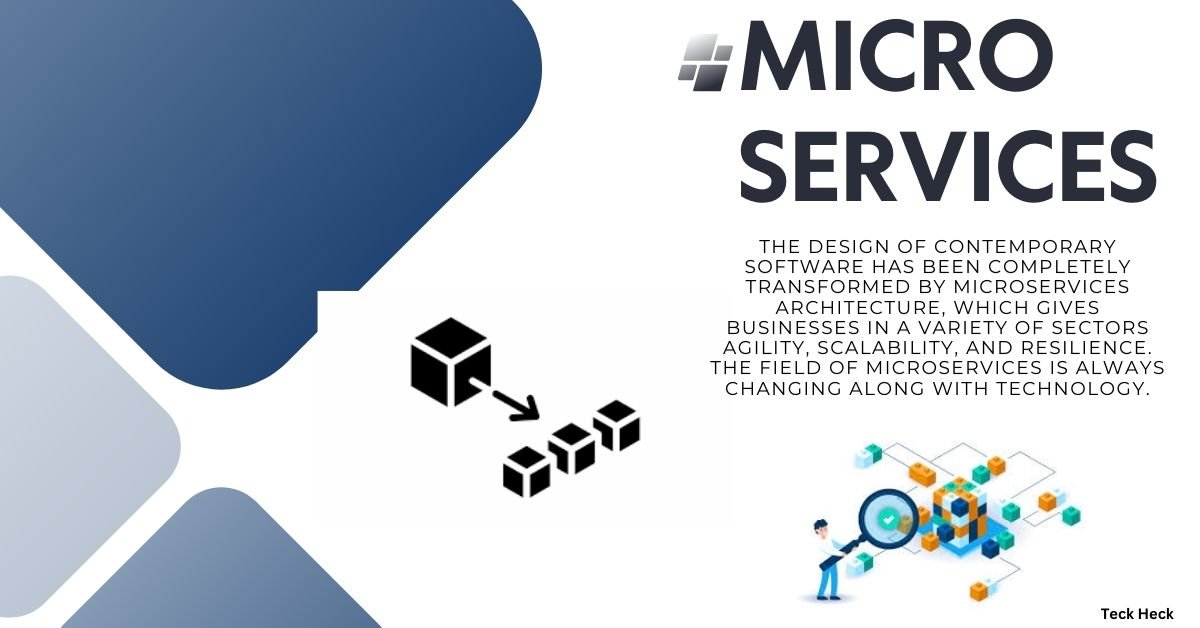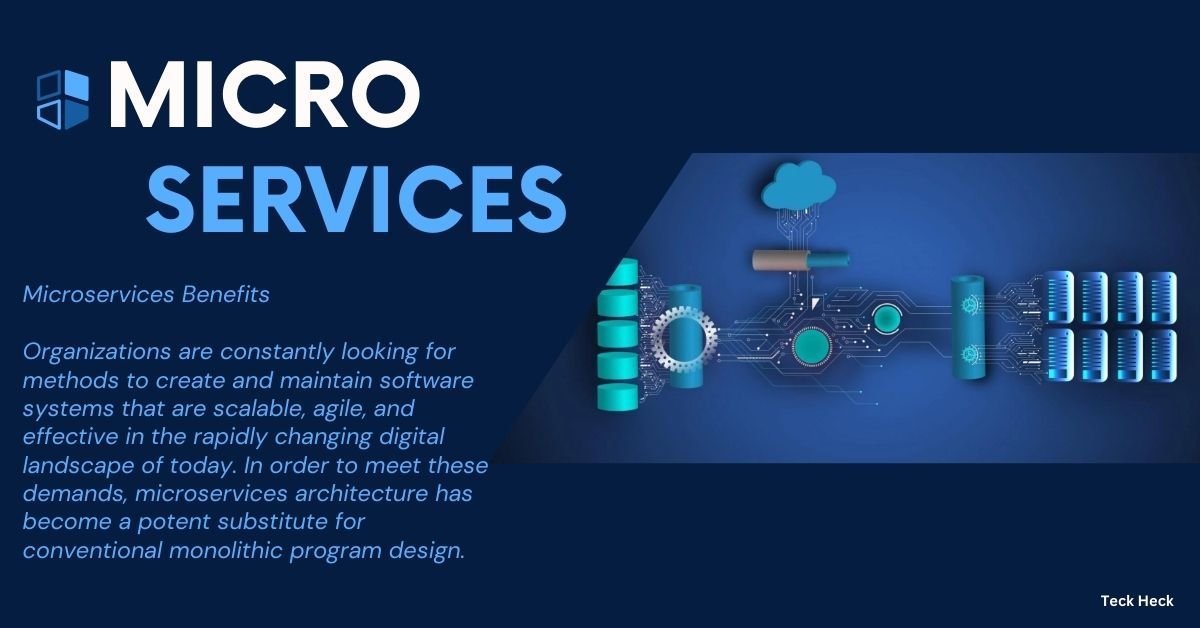
Transforming Modern Software Development of Microservices Architecture:
In the rapidly evolving world of software development, businesses seek ways to build and deploy applications faster, more efficiently, and with greater scalability. Among the most disruptive approaches of the past few years has been Microservices Architecture. This approach has revolutionized how applications are designed, enabling businesses to stay agile in an increasingly competitive digital landscape.
This article explores the idea of microservices architecture, including its main ideas, benefits, drawbacks, and recommended practices.
What is Microservices Architecture?
Microservices architecture is a design pattern where an application is built as a collection of small, independent services. Each service performs a specific function and communicates with others via lightweight protocols, typically REST APIs, gRPC, or message queues.
In contrast to monolithic architectures, that is highly intertwined and integrate all application components, the microservices architecture facilitates modularity and the development, deploying, and scaling services in isolation.
Key Principles of Microservices Architecture
- Decentralization
Microservices promote decentralized development and governance. Teams can choose the best tools, technologies, and languages for each service based on its requirements.
- Service Independence
All microservices run independently with their own database and infrastructure. This provides decoupling so that failures or updates in one service do not update others.
- Loose Coupling
Services are loosely coupled, meaning they interact through well-defined interfaces without relying on each other’s internal workings.
- Scalability
Microservices can be scaled individually based on demand. For instance, a service delivering the user authentication service layer can scale autonomously from a service delivering a product inventory service layer.

- Automation
Automation is a pillar of microservices architecture, in the development testing, in deployment, and monitoring.
Advantages of Microservices Architecture
- Improved Scalability
With microservices, there is a possibility to scale portions of the application in isolation, rather than scaling the whole application. It leads to use of resources in a more economical way and to reduced costs.
- Faster Development and Deployment
Independent services enable parallel development, allowing teams to build and deploy features faster without waiting for other components.
- Enhanced Flexibility
Microservices allow teams to employ incompatible technologies across many services. Businesses are able to select the best equipment for any work because to this generality.
- Resilience
Microservices architecture enhances resilience by isolating failures. In case of one service failure, the rest can still be operational with minimum downtime.
- Easier Maintenance and Updates
Since services are smaller and modular, they are easier to understand, update, and debug compared to monolithic applications.
Challenges of Microservices Architecture
Although microservices architecture is a powerful approach, it’s far from being foolproof:
- Complexity
Managing a distributed system involves complexity, especially in the context of communication, data consistency, and deployment.
- Monitoring and Debugging
Tracing issues across multiple services can be challenging. Monitoring and logging tools are crucial for the detection and resolution of problems.
- Data Management
All the services have their own database, which may cause problems in maintaining data consistency between the services.
- Latency
Inter-service communication across networks may include latency impacting the performance of the application.
- Increased Operational Overhead
Handling multiple services needs powerful infrastructure, orchestration, and deployment pipelines, which adds operational overhead.
Key Components of Microservices Architecture
- APIs and Communication
Services communicate via APIs such as REST, gRPC, or message brokers. Asynchronous communication over message queues (e.g., RabbitMQ, Kafka) is equally widespread.
- Service Discovery
Tools for service discovery, such as Consul or Eureka, allow services to discover mechanisms where services identify one another dynamically, particularly in aerospace applications of large, distributed architectures.

- Load Balancing
Load balancers distribute traffic for high availability with good performance.
- Containerization and Orchestration
Microservices often run in containers using tools like Docker. Orchestrators like Kubernetes manage deployment, scaling, and health monitoring.
- Monitoring and Logging
Tools such as Prometheus, Grafana, and ELK Stack (Elasticsearch, Logstash, Kibana) are key when monitoring and debugging microservices.
Use Cases of Microservices Architecture
- E-Commerce Platforms
E-commerce platforms gain from microservices, which provide the split implementation for services, such as user authentication, product catalog, payment processing and order management.
- Streaming Services
Streaming giants like Netflix leverage microservices to handle user recommendations, streaming content delivery, and analytics independently.
- Banking and Financial Applications
In order to provide the utmost layer of abstraction, banks adopt microservices to encapsulate the essential business logic such as account management, transation processing and fraud detection.
- Healthcare Systems
Microservices improve healthcare systems by splitting the workflow that deals with patient records, appointment management, and billing into independent services.
- IoT Applications
Microservices handle the complexity of IoT ecosystems by managing device communication, data processing, and analytics individually.
Transitioning to Microservices Architecture
- Analyze Your Application
Identify components that can be separated into microservices. Focus first on less critical elements to reduce the risk during migration.
- Define Boundaries
Clearly define the responsibilities and boundaries of each service. Follow the Single Responsibility Principle (SRP) to enhance the modularity.
- Build APIs
Create reliable APIs to help services communicate with one another. Maintain backward compatibility to avoid breaking modifications.
- Adopt CI/CD Pipelines
Create Continuous Integration and Continuous Deployment (CI/CD) pipelines for automated testing and deployment (e.g., for websites, and mobile apps).
- Leverage Orchestration Tools
Leverage tools such as Kubernetes for properly managing, deploying, and scaling microservices.
Best Practices for Microservices Architecture
- Design for Failure
Develop plans for situations where a service could fail and deploy mechanisms such as retries, circuit breakers, and fallbacks.
- Embrace DevOps
Promoting collaboration between development and operations teams for optimization of deployment and management.
- Prioritize Security
Implement security measures such as API gateways, authentication, encryption, and monitoring to protect microservices.
- Monitor Performance
Employ tools for the monitoring of service health, latency, and error rates. Establish alerts for potential issues.
- Optimize Communication
Select the appropriate communication mechanism (synchronous communication (e.g., HTTP) or asynchronous communication (e.g., message queues) according to the use case.
The Future of Microservices Architecture
Microservices architecture adoption is set to surge with the adoption of cloud-native development and digital transformation by organizations. Emerging trends include:
- Serverless Microservices
Serverless computing does away with the need to maintain infrastructure and thus allows programmers, free from managing infrastructure, to concentrate on writing code.
- Edge Computing
Microservices edge deployments are growing in popularity as a way to reduce latency and boost end-user performance.
- AI and Automation
Artificial intelligence-aided tools will make microservice design, deployment, and monitoring easier, thereby increasing efficiency.
Conclusion
The software development paradigm has been completely reformed by microservices architecture, which has provided scalability, flexibility, and resilience. Although it adds complexities, its benefits far exceed that of the difficulties when it is applied correctly.

With the future of business continuing to develop, the use of the microservices model will greatly be necessary in designing and developing the type of software capable of responding to needs that change. Through understanding its principles, the best practice application strategies, and the appropriate tools and technologies, the full benefits of this transformative approach can be achieved.




